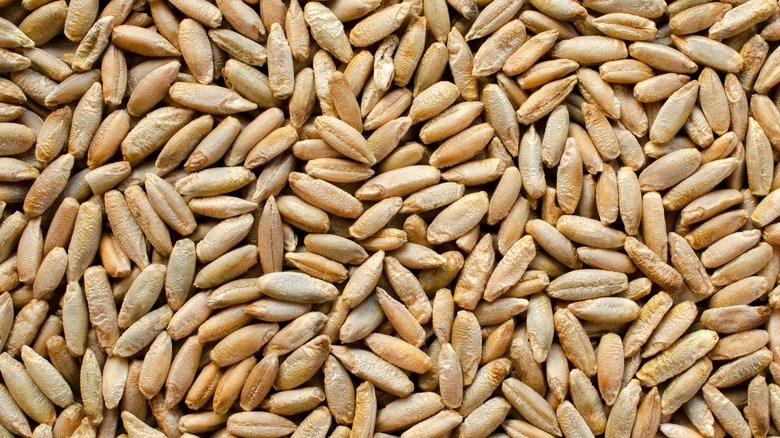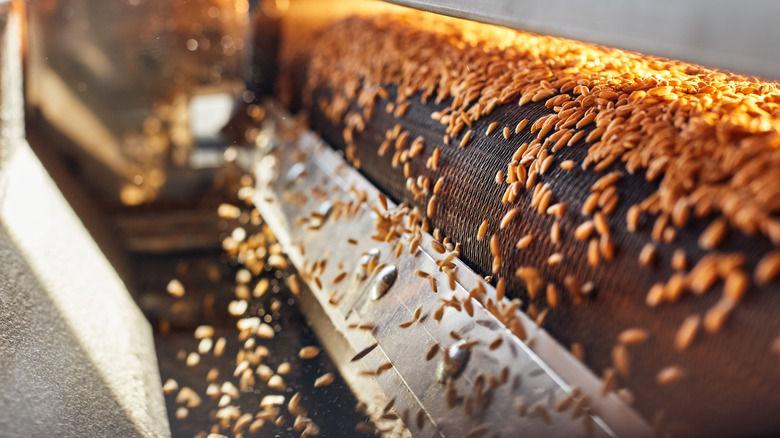Study Reveals The Potential Health Benefits Of Eating Rye
It wasn't enough that rye bread is an essential component of a deliciously-rich Reuben sandwich. It wasn't enough that rye whiskey forms the backbone of a plethora of A-list cocktails, such as the Manhattan, the Sazerac, and the Ward Eight (via The Spruce Eats). It still wasn't enough that rye beers are making a comeback despite almost being erased from history due to Germany's Reinheitsgebot, per the Food Republic.
No, none of that was enough for scientists who had to go and give us a bevy of new reasons to love rye. In the journal Nutrients, a team of Swedish researchers have published the results of a study suggesting that high-fiber rye foods, when compared to refined wheat, can positively impact weight loss and metabolic risk factors when consumed regularly.
Over 12 weeks, they tracked subjects given diets rich with rye fiber and those consuming refined wheat products. They found that the rye group had positive changes in their gut microbiota and increased gut fermentation products as well as increased concentration of their plasma short chain fatty acids. In simpler terms, the group of people consuming more rye had markers of improved health.
Why does rye hold such miraculous properties?
Rye has long been prized as a grain. According to ThoughtCo, it was domesticated in either the Middle East or Anatolia— modern-day Turkey — by 6600 BCE, and by 4500 BCE had made its way to Central Europe. Its hardiness made it particularly attractive to early farmers; relative to wheat and barley, rye is more resistant to frost, drought, and poor soil quality.
Consumed in a variety of forms, rye is noted for the distinctly spicy flavor it gives to whiskey, beer, bread, and porridges made from the whole grain. When compared to its much-more ubiquitous cereal cousin, wheat, rye presents a host of benefits. It is higher in carbohydrates, but it's also high in dietary fiber, which makes it lower on the glycemic index, per Food Struct.
Speaking of the glycemic index, another team of Swedish researchers from Lund University looked into the effect rye had on insulin response after a meal. In Nutrition Journal, they outline the results of a study wherein they fed healthy subjects foodstuffs made from a variety of rye flours, finding that endosperm and whole-grain flours produced a lower insulinemic response. Additionally, they found that rye foodstuffs of all stripes cause an increased feeling of fullness after eating, which can help regulate overall consumption.
If you're intrigued by these health benefits, but turn your nose up at the very thought of eating a pungent piece of rye bread, let's say, then take heart. There are still a variety of ingenious recipes, from cookies to salmon cakes, that pack in the whole grain goodness of rye.

